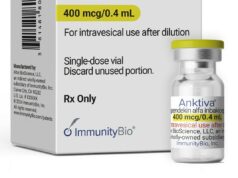Over the weekend, President Donald Trump took to Twitter to attack the Food and Drug Administration, suggesting without evidence that it was part of a “deep state” and was slow-walking efforts to develop vaccines and drugs for Covid-19. Shortly thereafter, the agency granted an emergency use authorization for a biologic treatment for the disease despite concerns by physicians and scientists.
“The deep state, or whoever, over at the FDA is making it very difficult for drug companies to get people in order to test vaccines and therapeutics,” Trump wrote in a tweet Saturday, tagging FDA Commissioner Stephen Hahn, whom Trump himself had appointed. “Obviously, they are hoping to delay the answer until November 3rd. Must focus on speed, and saving lives!”
Two days before, Pfizer and BioNTech – which together are developing one of the vaccines against the SARS-CoV-2 virus – said they had already dosed 11,000 of the nearly 30,000 participants they plan to enroll in their Phase II/III trial.
And on Sunday, the agency announced that it had issued an emergency use authorization for convalescent plasma as a treatment for patients hospitalized with Covid-19. The idea is to take antibody-rich plasma from patients who have recovered from the disease and infuse it into hospitalized patients in order to help them fight off infection.
Last week, The New York Times reported that the FDA had been prepared to grant an EUA, but that it stood down after Drs. Francis Collins and Anthony Fauci – respectively directors of the National Institutes of Health and the National Institutes of Allergy and Infectious Diseases – intervened, arguing that the data were too weak.
According to an agency memorandum on the EUA, the decision Sunday rested on data from small randomized trials, an expanded-access treatment protocol sponsored by the Mayo Clinic and other evidence like preclinical data.
While the Mayo Clinic EAP had enrolled more than 90,000 patients and produced data on more than 20,000, showing a benefit in patient mortality from early use of convalescent plasma, those data were not randomized. As such, federal officials found them insufficiently convincing.
Photo: FDA, via Flickr (free of all copyright protection)








